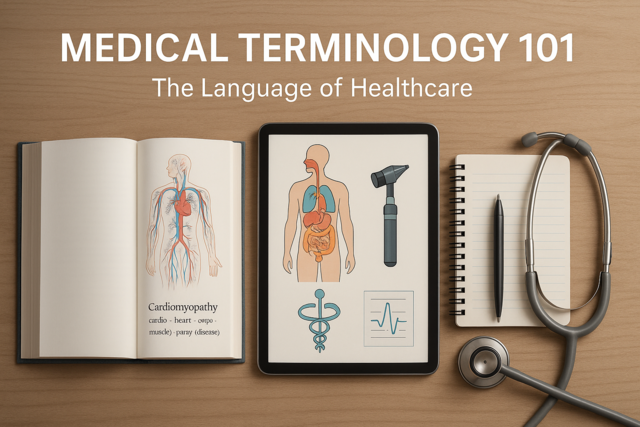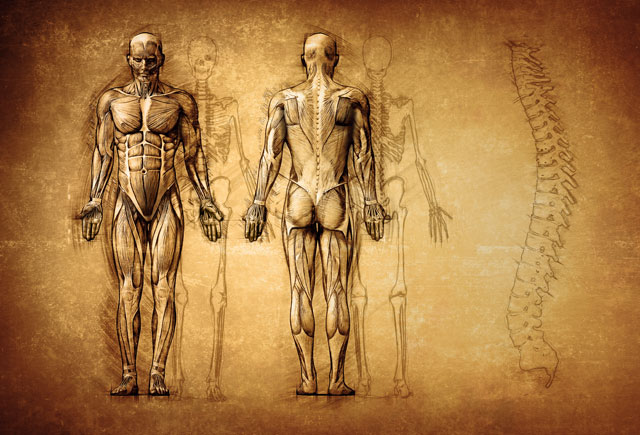Article Overview
In this article, you will learn the basics of maintaining your personal health and wellness. Topics will include diet and adequate sleep, as well as the importance of physical activity.
You will also learn about the obesity epidemic which is affecting teens today and how poor diet and lack of exercise contribute to weight gain and the associated chronic illnesses.
Section 1. Your Role in Your Health
As a young adult, it is imperative to learn the basics of maintaining good health before venturing out into the world. Once on your own, you will be solely responsible for making healthy choices for yourself and will also bear the responsibility for any poor health choices.
Unfortunately, many teens and young adults may not have a model of good health in the home and as a result emulate the poor health practices that they grew up around. In our society everything is based on the theory of "quicker, faster, and cheaper" and sadly that has extended to our food and general health as well. This mindset has led to a society where cancer and other diseases run rampant, two thirds of the population is overweight or obese and chronic degenerative diseases largely caused by a poor diet and lifestyle are causing people to age prematurely.
This does not have to be you.
Education is power, especially when paired with implementation. Understanding your options at a young age to living a healthy and balanced life will have positive ramifications not only for your own wellbeing, but for that of others as well.
Consider the following ways that embracing a healthy lifestyle as a young adult can benefit not only you, but those around you.
- You will gain and maintain better performance in sports.
- A clear mind and a healthy body aids in peak academic performance.
- You will be better able to deal with the stressors of young adulthood, including body image issues and peer pressure.
- You are less likely to suffer from an eating disorder and can identify the signs of one in your friends and help them to get assistance.
- You will learn to avoid risky general and sexual health behaviors, which can have long lasting, if not permanent ramifications.
- You can speak intelligently to family members about the risks associated with certain eating habits, smoking, drinking, and so on. You can be the catalyst for someone to kick a bad habit or for your entire family to adopt a healthier lifestyle.
- In your workplace, you can serve as an example of health and balance and encourage other employees to adopt good habits which help to maintain happiness and productivity.
- As a parent, you will feed and nourish your children in a balanced and healthy way, thus giving them the best start in life and gifting them with the invaluable inheritance of a healthy lifestyle.
- When you enter midlife and your senior years, the healthy lifestyle you maintained throughout your years will allow you to escape many of the diseases adults suffer from including high blood pressure, heart disease, obesity, diabetes, and a whole host of others.
As you can see, good health is something that you build upon for life. The earlier you adopt good habits, the more likely you are to thrive throughout your years and suffer from minimal, is any major health problems. In the next section, we'll examine some general areas that are the foundation for self care.
~ CHECK IN Section 1
Pause a minute and think about the following questions.\
How would you grade your general health and that of your family?
Is there anyone in your immediate circle suffering from major health issues?
If so, can you think of some of the diet and lifestyle choices that may have led to the health problems?
While there are many ways to improve and maintain your heath, there are a few basic habits that if adopted, can do wonders for your overall health, especially as you move into adulthood.
Food is fuel, and just as a formula one race car requires premium fuel to perform well, your body needs the best foods in order to reach and maintain optimal performance. The food you consume on a daily basis determines not only how much energy you have, but how well your brain functions, how your skin looks, and even how you smell!
Know that your body cannot operate long term on foods that are devoid of nutrients, are high in sugar, and contain large amounts of added chemicals and preservatives. While these are sometimes the tastiest and easiest to prepare foods, they are definitely not contributing to your long term health.
When it comes to food, the following tips will usually keep you going in the right direction.
- Try not to eat foods where sugar, fructose, or other sweeteners are listed near the top of the ingredients list.
- Avoid soda, especially those made with high fructose corn syrup and diet sodas that contain Aspartame (known to cause cancer in animal studies).
- Challenge yourself to eat foods with less than 5 ingredients listed on the package. This is a sign of minimal processing and chemical additives.
- Eat foods from a variety of food groups daily, with large helpings of fruits and veggies.
- Always eat breakfast, as your brain and body require fuel to start the day right.
- Drink lots of water. You're brain, blood, muscles, and tissues are mostly water. Don't starve them!
The eating habits you develop as a young adult will likely follow you into the University and into your adult life. Making an effort to develop healthy habits now, is a distinct advantage as you age.
~ Check IN Section 2
Do you consider yourself a healthy eater?
What foods do you gravitate most towards and why?
How much water do you drink on average in a day?
Are there any small steps you can take to improve your diet?
Section 3. The Basics of Good Health. Getting Adequate Sleep
- Sleep jumpstarts something called "process consolidation," which is designed to cement new skills and add information to your long term memory. If you are practicing a skill or cramming for a test, you may often find the job easier after a good night's sleep. This is because the brain has had the opportunity to fully absorb and assimilate the information and patterns that you are feeding it.
- Sleeping well, 8 to 10 hours, has been shown to increase athletic stamina and reduce fatigue during competitions.
- Inconsistent sleep patterns can inhibit growth and healing in the body. You literally grow while you sleep and your body also uses this time to repair damaged cells and organs, as well as to digest food and extract nutrients.
- Getting adequate sleep reduces inflammation in the body, which can be a precursor for heart disease, autoimmune disease, diabetes, arthritis, and premature aging.
- Adequate sleep allows your creativity to blossom, as your brain uses this time to sort through and re-file all of the images, sensations, and thoughts it has encountered during the day. People often get their best ideas or the answer to a difficult problem after a good night's rest.
- Prolonged lack of sleep has been linked to lower academic performance in both middle school children and those in high school and college.
- Hormones that signal the need for sleep can also trigger false feelings of hunger. Getting adequate who got less sleep lost more muscle mass, while those who got a good night's rest lost more actual fat.
A good night's sleep is one of the most important, yet undervalued, ways to maintain and improve your health. While you rest, your body metabolizes food, repairs injuries that have occurred throughout the day, and has a chance to power down into rest mode and conserve energy. Much like a cell phone, if you never recharge your body's battery, it may fail to operate one day when you need it most.
~ Check IN Section 3
How many hours do you usually sleep each night?
Do you feel well rested when you awake?
Do you find yourself dozing off during class or needing a nap during the day?
Are you able to concentrate well on exams and maintain good coordination when playing sports?
Section 4. The Basics of Good Health. Exercise
You've probably heard your parents or even grandparents describe how different things were in their youth and young adult years. Children often helped around the home or farm or played outdoors the majority of the day during the summer and often after school. Due to this, they were much healthier and didn't really have the need for any formal recommendations on exercise.
Fast forward a few generations and things look much different. There is currently an epidemic of childhood obesity and type 2 diabetes. This was unheard of in previous generations, not only because children historically were more active, but also because they ate less refined and sugary foods. The combination of these two factors have caused perhaps one of the worst health issues to date, as overweight children often become overweight as adults and are at risk for a host of chronic health problems.
To place this in context, take a look at these troubling statistics:
- "30% of teens are overweight, with half of that number qualifying as obese.
- "25.8 million children and adults in the United States have diabetes, which is 8.3% of the overall population.
- "In 2007, diabetes was listed as the underlying cause on 71,382 death certificates and was listed as a contributing factor on an additional 160,022 death certificates. This means that diabetes contributed to a total of 231,404 deaths."
- Obesity and Diabetes can cause a host of other health issues, including high blood pressure, blindness, kidney disease, amputations, and heart disease.
In addition to what is mentioned above, a lack of exercise can also result in breathing problems, disordered sleeping, anxiety, and depression. In fact, studies have shown that regular moderate exercise is as effective, if not more so, in curing mild to moderate depression. Even as little as a half hour of exercise a day can dramatically decrease your risk of becoming overweight and developing health problems.
Some easy ways and fun ways to get exercise include:
- Organized sports.
- Biking.
- Hiking.
- Swimming.
- Gymnastics.
- Dancing.
- Skiing.
- Rollerblading.
- Skateboarding.
- Volleyball.
~ Check In Section 4 How much exercise would you estimate you get on a daily basis?
Do you play on any sports teams, or informally with friends?
How do you think your activity level is affecting your overall health?
Do you know anyone who is struggling with their weight? What is their level of exercise?
Conclusion
It may seem like a lot, but a good diet, adequate exercise, and proper rest are the basic foundations of good health. Mastering these areas will help you to maintain balance and create fulfillment in all areas of your life, including school, work, family, and recreation.






























